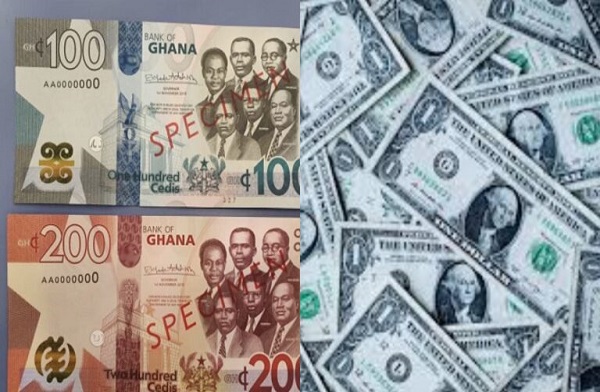
Audio By Carbonatix
The worst may not be over for Ghana’s cedi, Africa’s third-worst-performing currency this year.
Analysts said the unit, which has already lost more than 7% against the dollar, could continue to weaken despite the International Monetary Fund’s $3 billion bailout following the country’s 2022 default.
Ghana has secured workouts with its domestic and official creditors but is still trying to hammer out a deal with Eurobond investors. And while the country’s international reserves have improved to a 10-month high of $5.9 billion in December 2023, they remain too thin to effectively defend the currency.
“Those are weak reserve levels that no one expects to support currency stability,” said Courage Boti, an economist at GCB Capital Ltd. in Accra, who said the cedi would have fallen further already if Ghana had not suspended foreign debt payments.
“Moreover, elections this year is a big risk in terms of foreign exchange demand pressure,” he said. The vote for a new president is due to be held in December.
Ghana announced a moratorium on its foreign obligations in December 2022, as it grappled with the aftermath of the Covid-19 pandemic and the shock to prices caused by Russia’s invasion of Ukraine. It has completed a domestic bond revamp and reached an agreement in principle with bilateral lenders in January to rework $5.4 billion of loans. It is still negotiating with Eurobond holders who are owed $13 billion.
Foreign investors might look more kindly on Ghana investments once the debt restructuring is completed, but political risk ahead of the election will be a reason for continued caution, Mr. Boti said.
The economy of the world’s second-biggest cocoa producer depends on imports of everything from tooth-picks to heavy machinery, and they are expected to increase ahead of the vote. The government projects GDP growth to quicken to 2.8% this year from 2.3% last year.
“One of the policy priorities of the central bank under the IMF programme is to rebuild foreign reserves,” said Kweku Arkoh-Koomson, an economist at Databank Group. “This means the Bank of Ghana will not necessarily intervene on the market the way it should but just to smoothen volatilities,” he said, forecasting the cedi to weaken to 13.7% to dollar by the end of the year.
The cedi traded almost unchanged at GH¢12.9267 per dollar at 10:41 a.m. in Accra, the capital, according to data compiled by Bloomberg.
Latest Stories
-
Uproar as UG fees skyrocket by over 25% for 2025/2026 session
32 minutes -
Japan PM joins fight for more female toilets in parliament
1 hour -
Ga Mantse declares war on fishing industry child labour
2 hours -
Adom FM’s ‘Strictly Highlife’ lights up La Palm with rhythm and nostalgia in unforgettable experience
3 hours -
OMCs slash fuel prices as cedi gains
4 hours -
Around 40 dead in Swiss ski resort bar fire, police say
5 hours -
AFCON 2025: Aubameyang and Nsue make history among oldest goalscorers
6 hours -
AFCON 2025: How Kwesi Appiah’s Sudan qualified for round of 16 without scoring any goal
7 hours -
Ghana is rising again – Mahama declares
7 hours -
Firefighters subdue blaze at Accra’s Tudu, officials warn of busy fire season ahead
7 hours -
Luv FM’s Family Party In The Park ends in grand style at Rattray park
7 hours -
Mahama targets digital schools, universal healthcare, and food self-sufficiency in 2026
8 hours -
Ghana’s global image boosted by our world-acclaimed reset agenda – Mahama
8 hours -
Full text: Mahama’s New Year message to the nation
8 hours -
The foundation is laid; now we accelerate and expand in 2026 – Mahama
8 hours

